
Kod: 02357231
Simplicius: On Aristotle Physics 3
Autor Peter Lautner Simplicius
Aristotle's Physics Book 3 covers two subjects: the definition of change and the finitude of the universe. Change enters into the very definition of nature as an internal source of change. Change receives two definitions in chapte ... więcej
- Język:
 Angielski
Angielski - Oprawa: Miękka
- Liczba stron: 240
Wydawca: Bloomsbury Publishing, 2014
- Więcej informacji o książce

Zobacz książki o podobnej tematyce
-
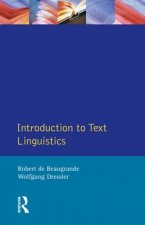
Introduction to Text Linguistics
87.75 € -

AmBushed
16.21 € -5 % -

Face Of The Third Reich
22.46 € -12 % -

Flügel des Lebens - Luft, Tee-Aufgussbeutel
4.73 €
Bon podarunkowy: Radość gwarantowana
- Podaruj bon o dowolnej wartości, a my się zajmiemy resztą.
- Bon podarunkowy dotyczy całej naszej oferty.
- Możesz wydrukować elektroniczny bon z e-maila a następnie przekazać go obdarowanemu.
- Ważność bonu wynosi 12 miesięcy od daty wystawienia.
Więcej informacji o Simplicius: On Aristotle Physics 3
Za ten zakup dostaniesz 161 punkty
 Opis
Opis
Aristotle's Physics Book 3 covers two subjects: the definition of change and the finitude of the universe. Change enters into the very definition of nature as an internal source of change. Change receives two definitions in chapters 1 and 2, as involving the actualisation of the potential or of the changeable. Alexander of Aphrodisias is reported as thinking that the second version is designed to show that Book 3, like Book 5, means to disqualify change in relations from being genuine change. Aristotle's successor Theophrastus, we are told, and Simplicius himself, prefer to admit relational change. Chapter 3 introduces a general causal principle that the activity of the agent causing change is in the patient undergoing change, and that the causing and undergoing are to be counted as only one activity, however different in definition. Simplicius points out that this paves the way for Aristotle's God who moves the heavens, while admitting no motion in himself. It is also the basis of Aristotle's doctrine, central to Neoplatonism, that intellect is one with the objects it contemplates.In defending Aristotle's claim that the universe is spatially finite, Simplicius has to meet Archytas' question, "What happens at the edge? ". He replies that, given Aristotle's definition of place, there is nothing, rather than an empty place, beyond the furthest stars, and one cannot stretch one's hand into nothing, nor be prevented by nothing. But why is Aristotle's beginningless universe not temporally infinite? Simplicius answers that the past years no longer exist, so one never has an infinite collection.
 Szczegóły książki
Szczegóły książki
Kategoria Books in English Literature & literary studies Literature: history & criticism Literary studies: general
64.17 €
- Pełny tytuł: Simplicius: On Aristotle Physics 3
- Autor: Peter Lautner Simplicius
- Język:
 Angielski
Angielski - Oprawa: Miękka
- Liczba stron: 240
- EAN: 9781472557353
- ISBN: 1472557352
- ID: 02357231
- Wydawca: Bloomsbury Publishing
- Waga: 306 g
- Wymiary: 235 × 158 × 12 mm
- Data wydania: 10. April 2014
Ulubione w innej kategorii
-

How to Read a Book
14 € -10 % -

The Picture of Dorian Gray
6.64 € -21 % -

Mysteries of Udolpho
10.37 € -22 % -

Three Theban Plays
9.26 € -28 % -

Discarded Image
15.41 € -26 % -

Edda
9.56 € -13 % -

Plainwater
15.71 € -21 % -

Herbert Poems
11.68 € -18 % -

If Not, Winter: Fragments Of Sappho
17.22 € -28 % -

Finn and Hengest
10.27 € -28 % -

Sejong Korean Extension Activity Book 1A - English Edition, m. 1 Audio
21.75 € -

Branching Streams Flow in the Darkness
27.09 € -2 % -

Gentle Creature and Other Stories
7.35 € -27 % -
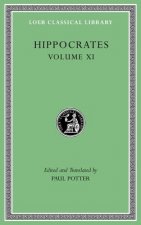
Diseases of Women 1-2
35.05 € -

Art of Shakespeare's Sonnets
33.74 € -4 % -
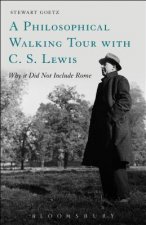
Philosophical Walking Tour with C. S. Lewis
49.76 € -

Essential Writings of Ralph Waldo Emerson
20.95 € -16 % -

Great Expectations
6.64 € -24 % -

Pickwick Papers
9.46 € -26 % -
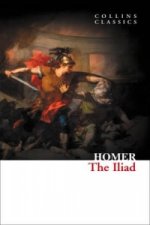
Iliad
4.62 € -13 % -

Golden Bough
15.20 € -19 % -

Sicilian Romance
8.25 € -28 % -
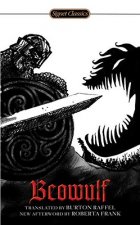
Beowulf
4.93 € -22 % -

Meditations in an Emergency
12.08 € -29 % -

Analysis of Roland Barthes's The Death of the Author
8.05 € -15 % -

Reader's Guide to Nabokov's 'Lolita'
20.34 € -7 % -
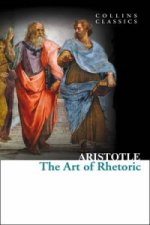
Art of Rhetoric
3.42 € -6 % -

Saga of Tanya the Evil, Vol. 3
10.17 € -27 % -

Anna Karenina
9.46 € -14 % -

Collected Poems
19.23 € -28 % -

Moveable Feast
9.46 € -20 % -
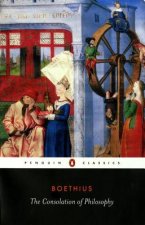
Consolation of Philosophy
11.07 € -22 % -

Sejong Korean Student Book 2A - English Edition, m. 1 Audio
29.01 € -

Wide Sargasso Sea
9.16 € -16 % -

Simple Passion
8.25 € -24 % -

Little Women
8.55 € -15 % -

Analysis of Donna Haraway's A Cyborg Manifesto
7.95 € -11 % -

Devils
10.97 € -15 % -

Two Treatises of Government
8.96 € -19 % -

Life of Samuel Johnson
24.78 € -

Active Korean 1 Workbook (QR), m. 1 Audio
22.76 € -

Room With A View
9.86 € -18 % -

Mabinogion
10.37 € -27 % -

Zofloya
10.57 € -18 % -

Virginia Woolf
17.22 € -28 % -

Ivanhoe
10.27 € -28 % -

Literature and Evil
12.89 € -17 % -
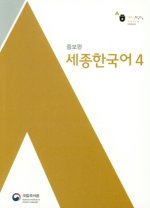
Sejong Korean 4, m. 1 Audio
26.99 € -

Literary Wonderlands
28.20 € -13 %
Collection points Bratislava a 2642 dalších
Copyright ©2008-24 najlacnejsie-knihy.sk All rights reservedPrivacyCookies



 15549 collection points
15549 collection points Delivery 2.99 €
Delivery 2.99 € 02/210 210 99 (8-15.30h)
02/210 210 99 (8-15.30h)